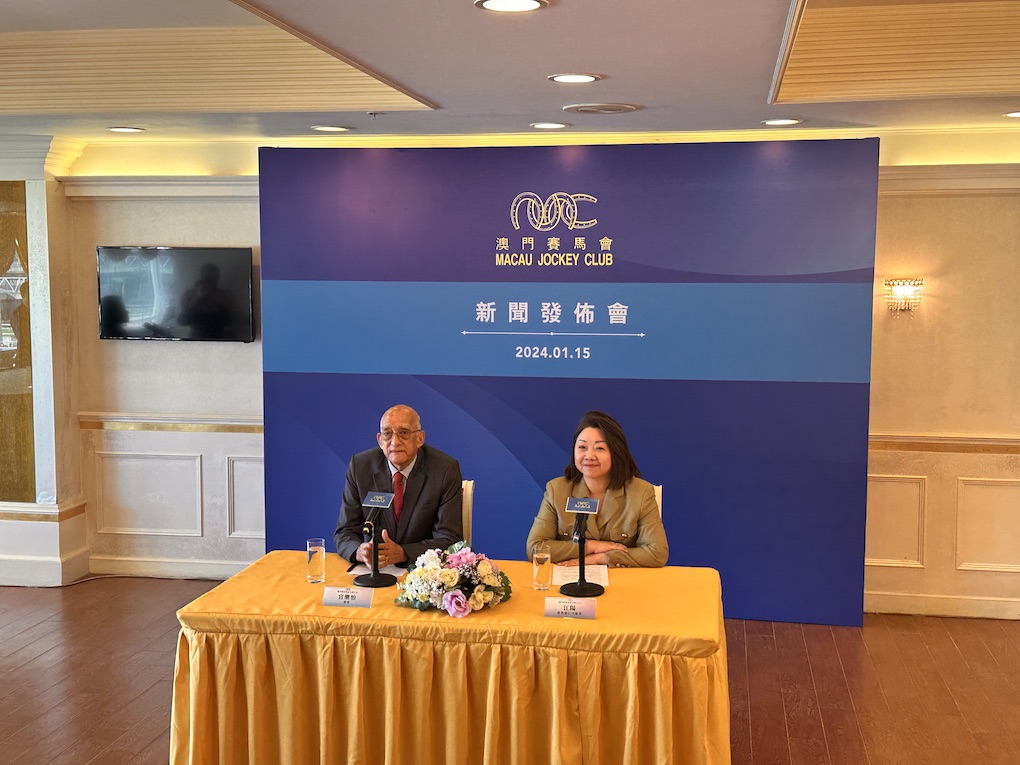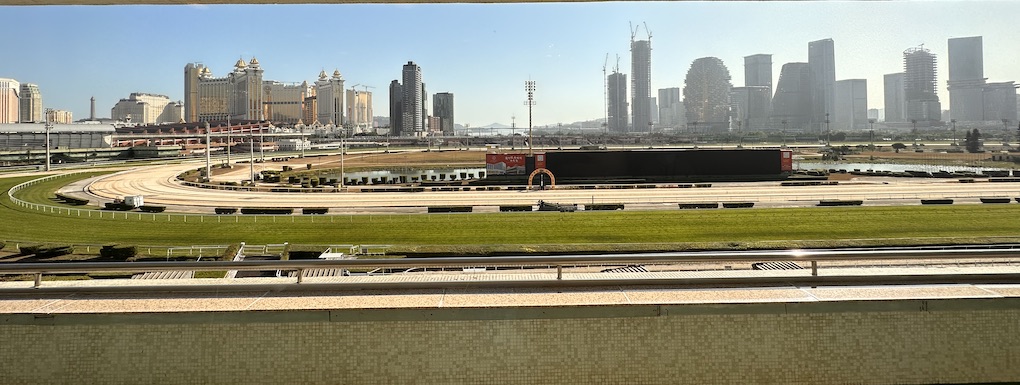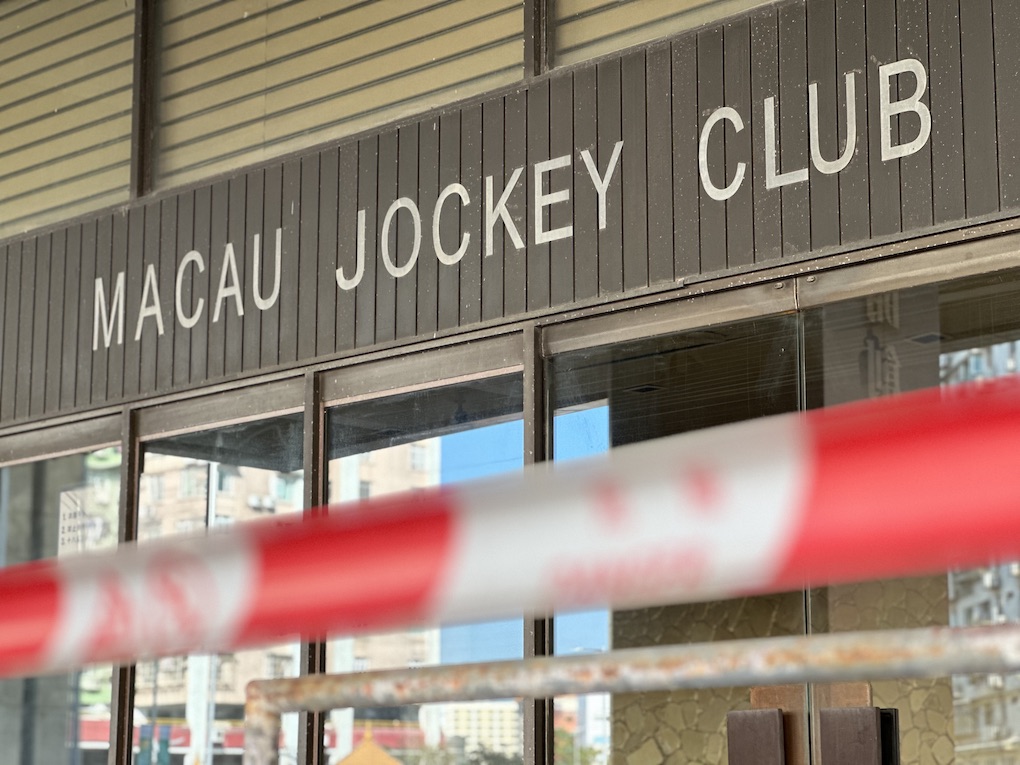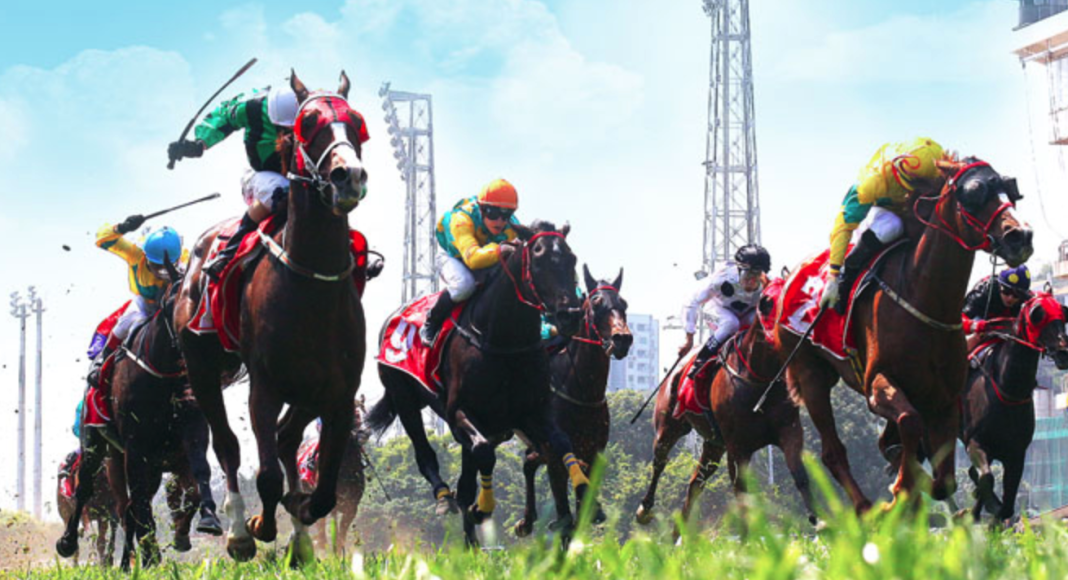After the announcement by the Macau government that the Macau Jockey Club was going to close doors, and that horse racing was effectively terminated in the SAR, the company has come forward to explain the decision, noting that they were “always operating at a loss”, totaling some MOP2.5 billion ($310 million).
The figure not only calls into question the Macau government’s decision to extend its concession by 24 years back in 2018, but also how much tax was actually paid by the operator, and why it doesn’t have to pay any type of indemnity due to its self-chosen cancellation of its horse racing concession.

“The development space for horse racing in Macau has continually been reduced, coupled with the three-year influence of the pandemic, meaning that the company remained in a state of loss”, noted a company representative during the press conference on Monday.
“It became impossible for the company to continue its activities,” noted the company representative, Dr. Rui Cunha.
The event did little to dispel doubts about why the concession had not been put up to public tender and why the government was effectively eliminating horse racing from its portfolio of legal gaming activities.
Earlier on Monday, the Secretary for Administration and Justice clarified that the Macau Jockey Club’s horse racing concession would not be put up for tender and that the land currently occupied by the operator (reverting to the government in April of 2025) would not be used for a “casino” or for “gaming” purposes.
According to reports, the operator owes millions in back taxes and operated for over a decade without the necessary capital to abide by Macau law. Authorities assure that the development plans under its 2018 concession were achieved and that its obligations have been paid out.

In addition, parts of the land under its concession were used to construct and sell apartments – to the benefit of the company and its owners, something the Secretary for Administration and Justice justified as “being finalized already” and thus not requiring compensation to the public coffers.

The purported date of the choice by the company to relinquish its concession, the exact point at which it contacted the government to give up its lucrative endeavor, was also not indicated by authorities or by the operator. Numerous news reports last year, including those by AGB, indicated the potential closure of Macau’s only horse racing track, but both the company and authorities sought to assuage speculation – indicating that all was on track.
Many questions remain:
Who stands to benefit?
Why does the Macau government need the MJC land?
Why wasn’t another concession opened for the contract?
What damages was Macau’s horse racing concession causing to the public?
AGB knows that numerous parties were hoping to bid for the horse racing contract, with inside sources citing mismanagement as leading to interest in the concession but massive debts were a dissuading factor.

Coupled with the fact that Macau was the first to launch horse racing regionally, gaming expert and lawyer António Lobo Vilela notes that “the first race was in 1637” – before its neighbor – “the tradition of horse racing is older than Hong Kong […] the question is – shouldn’t they have tried to procure someone to continue the legacy of racing, even if it wasn’t their core business?”
Aside from the land bank it stands to acquire, and then evaluate how to use (being centrally placed in Taipa – nearby the Cotai Strip), it’s unclear what the government’s play is on eliminating another revenue stream.
Insiders note that limitations had already been put in place, on imports of horses from abroad and broadcast of the races on foreign soil for increased betting. But looking at the revenues generated by the Hong Kong Jockey Club – of nearly $39 billion in its most recent financial year – Macau’s purported move to ‘diversify’ its economy, and the potential benefits of an equestrian-based experience, is being called out after this move.

Numerous reports indicate that the Macau Jockey Club was operating at a loss and significantly under its capital requirements leading up to the 2018 re-tender, but Macau authorities went ahead with its extension anyway.
And now…
After the elimination of greyhound racing, Macau only operates horse racing and selective sports betting.











